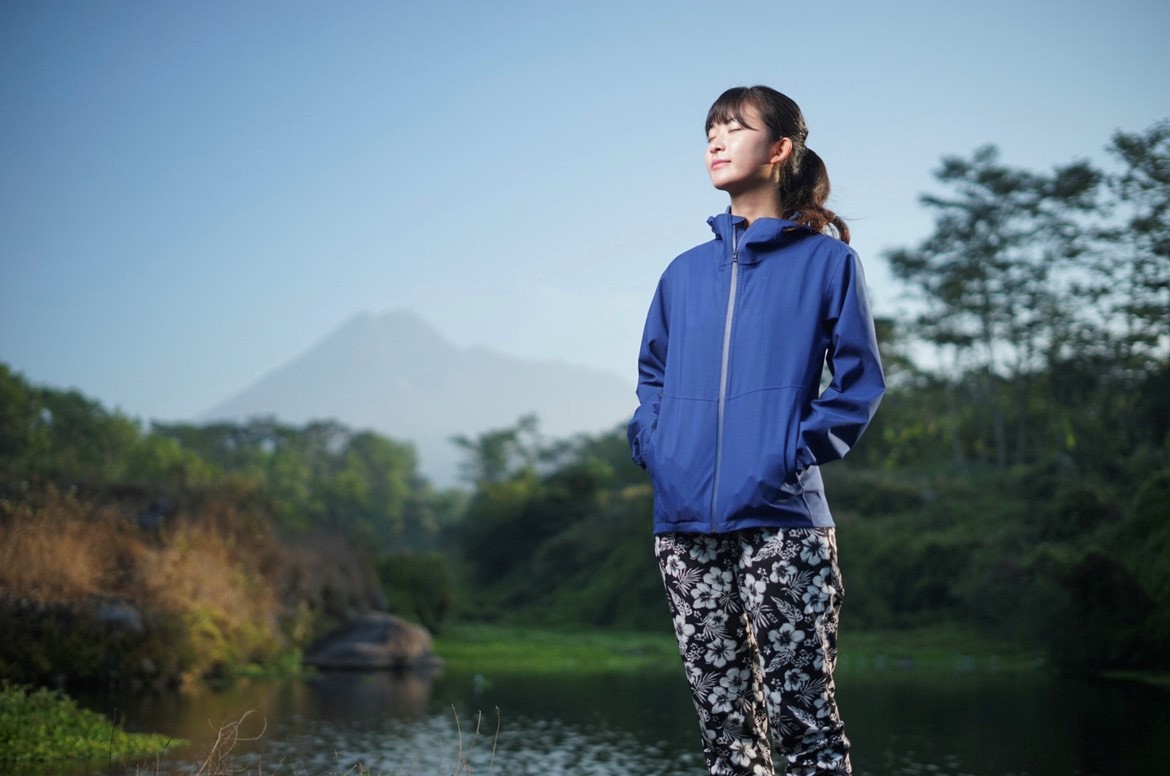Social media has revolutionized how people communicate and share information, offering a platform for people from different countries to connect and gain cultural understanding of one another. Ayu Sakamoto, a prominent content creator is fluent in Indonesian and shares a wealth of information on Japanese language lessons and other helpful content related to Japan to her large followers who are mostly Indonesian.
― How did you first become interested in Indonesia and Indonesian language?
I wanted to learn a language other than English and chose Indonesian as my major when I enrolled in Tokyo University of Foreign Studies. I was interested in the swift progress of developing nations, and Southeast Asia immediately came to mind. Among the countries in the region, Indonesia stood out to me with its vast population and thriving youth demographic, showing great potential for growth. I was also drawn to Indonesia’s thriving tourism sector, particularly Bali Island’s appeal to Japanese visitors. Furthermore, my fondness for idols, including AKB48, made me feel close to Indonesia, which is home to JKT48.

― Can you share your favorite memories or experiences from living in Indonesia?
During my study in the Department of Tourism at the Faculty of Arts in Gadjah Mada University, I developed strong bonds with my Indonesian peers, who came from various regions across the country. Sometimes, I accompanied them to their hometowns during the end-of-year break. Later, I embarked on a journey to explore several islands in Indonesia, which turned out to be a delightful experience. Throughout my study abroad program, I had the opportunity to visit major tourist destinations in West, Central and East Java, as well as Bali, Sumatra, Kalimantan, Sulawesi and Raja Ampat Islands.
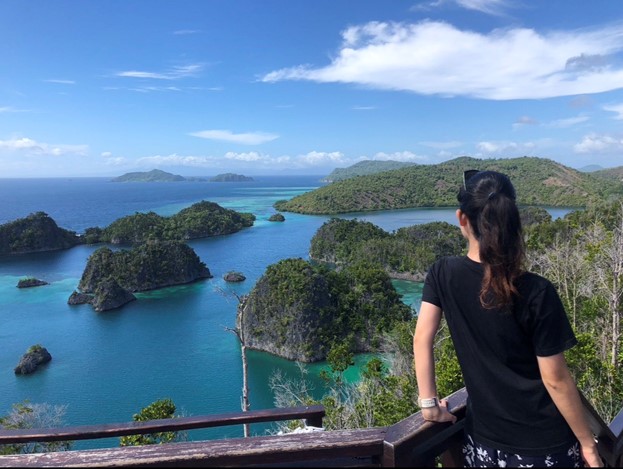
― How have your experiences living in Indonesia influenced you?
Indonesia’s diverse religions have been a significant learning experience that continues to influence me. One story that was particularly striking to me was about a young friend who converted to a different religion despite the unimaginable struggle with their parents. How many young people in Indonesia take their lives seriously and make important decisions at a young age surprised me. It taught me the value of taking responsibility for your life and creating your own path.
― What do you think is the biggest difference between Indonesians and Japanese?
I believe that many young Japanese, including myself, tend to live life in a rush, both positively and negatively. In Japan, people are known for their fast pace and constant busyness. In contrast, during my time studying in Indonesia, I found that people there took a more relaxed approach to life, often saying “Santai, santai!” (Relax, relax!), haha!
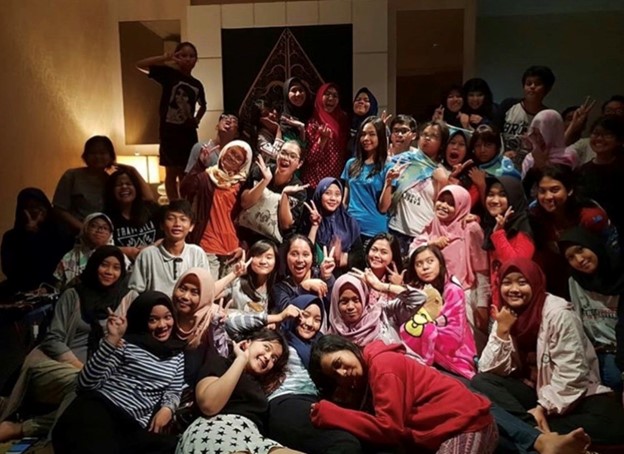
Promoting greater understanding and appreciation of diversity and helping break down barriers between different communities through social media
― What inspired you to start creating content about Japanese language and culture on social media?
There were two things that motivated me to begin my journey as a content creator. One was the difficulties I experienced in language learning and daily life while studying abroad in Yogyakarta. I struggled to get used to the differences between the language spoken in daily conversations and what I had learned in my university in Japan. Additionally, there were language mix-ins of Javanese, making it even more challenging. Also, I regretted not having done enough research about useful information for living in Indonesia while I was in Japan. Another reason I became a content creator is because I wanted to support my Indonesian friends who were working hard to learn Japanese language. When I examined their textbooks, I found that some of the phrases introduced in them were a little bit unnatural and that the explanations were often difficult to understand. These experiences and my friends prompted me to consider what I could do to assist Indonesians in their Japanese language learning and to support those who like Japanese culture or live in Japan by providing information useful in daily life in Japan.
I returned to Japan from Yogyakarta in the summer of 2019. I began creating content during the pandemic in 2020. Not being able to travel or meet people like you used to, I was anxious about losing my Indonesian language skills and my ability to communicate with Indonesians. I wanted to connect with people and thought social media was an excellent tool for doing so. This is how I started to provide content through social media.
― What are some of the challenges you have faced as a content creator?
The greatest difficulty is keeping up the pace. Creating content consistently can be demanding as you need both motivation and time commitment. I would say I am not always successful but luckily, I have several friends who support me and with the help of others I have been able to keep it up.
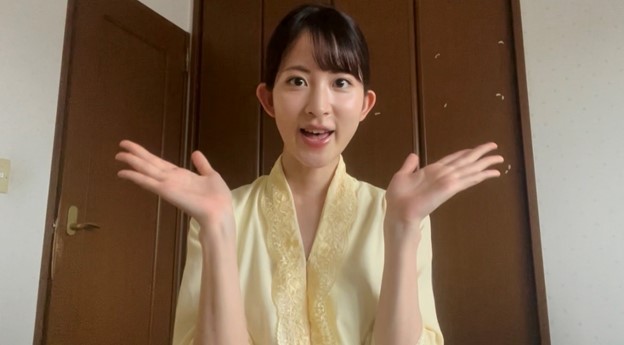
― How do you think your content helps to promote friendship and cooperation between Japan and Indonesia?
Although Indonesia is often considered to have a close relationship with Japan, there has been a noticeable decline in Japan’s influence on the country in recent years. Despite Japan’s global reputation for anime, the level of interest in Japanese language and culture appears to be decreasing. I consider myself as one of the passionate individuals working to bridge the two countries and foster cultural exchanges between them. I want to provide much information about Japan through my content. Whether it is a language lesson, information about tourist hotspots, or other interesting tidbits, I hope to offer of Japanese culture.
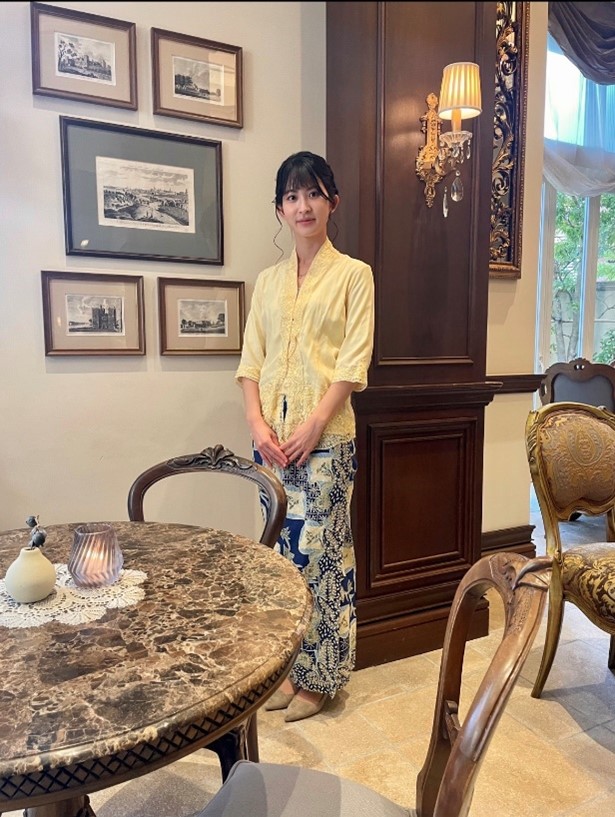
― Any advice for those interested in Japanese language and culture?
Let’s engage on social media! There are more Japanese language learning resources available online than ever before, many of which are offered free of charge. Moreover, there are numerous Japanese individuals including myself, who openly express their fondness for Indonesia on their social media accounts. Considering this, I believe it is quite easy to establish communication with such individuals. I encourage you to proactively use social networking services and connect with people who share similar interests.
― Any plans for future projects or collaborations that you would like to share with our readers?
My content has been primarily about Japanese language learning. My next aim is to extend support to a greater number of Indonesian students who intend to study in Japan, while continuing to put emphasis on Japanese language. Also, I want to expand the range of our support to include more resources that are beneficial to Indonesians residing in Japan.
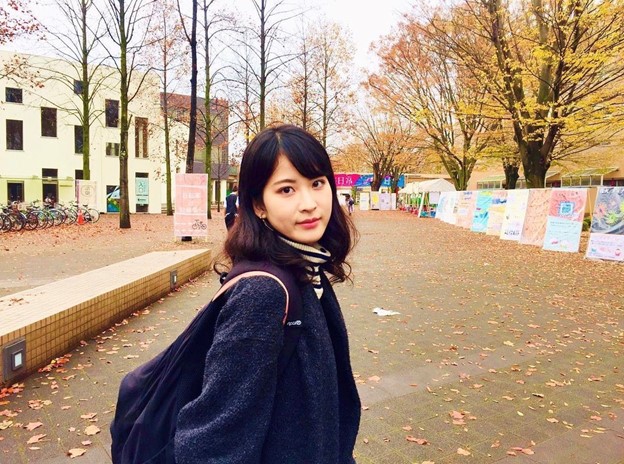
Ayu Sakamoto
Graduated from Tokyo University of Foreign Studies in 2021 after spending one year in Indonesia. Creates content as the driving force behind Kepo Jepang (translated freely as “Overly Curious about Japan”) during weekends while working full-time for a company. Playing with the Japanese and Indonesian languages, Ayu coined some terms, including “ohayoupagi” (“good morning”) and “arigatou gozaimaaci” (“thank you”).
- Kepo Jepang Instagram: https://www.instagram.com/kepo_jepang/
- Kepo Jepang Twitter: https://twitter.com/kepo_jepang
- Kepo Jepang : https://kepojepang.com/
- Kepo Jepang Youtube channel: https://www.youtube.com/channel/UC9g5pyI2Sl5XBxo93la0iAQ
Interview and text: Dina Faoziah
Photo courtesy: Ayu Sakamoto


